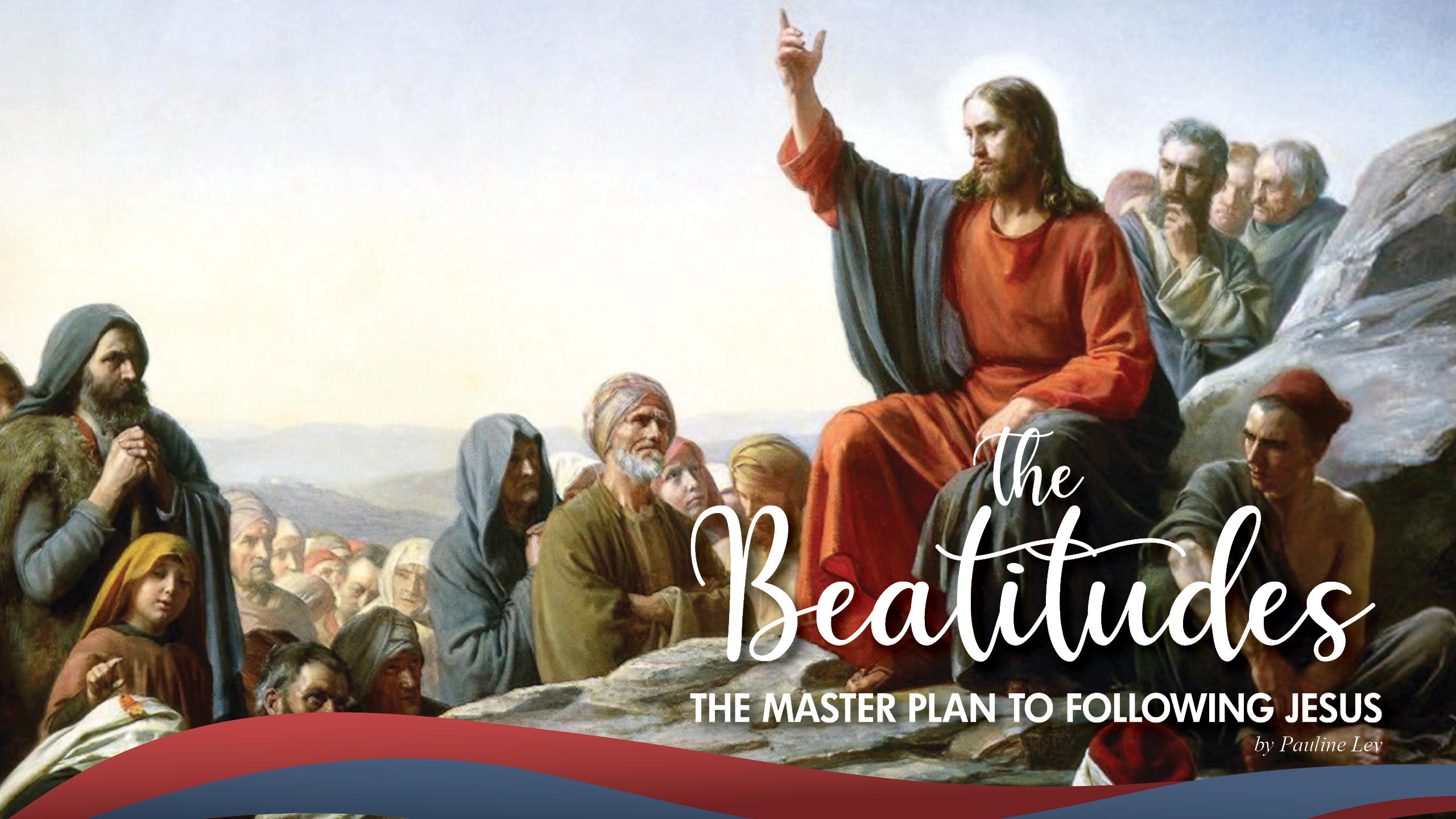
By Pauline Lev
Are you living a happy, fulfilled life?
The world tells us what it thinks will make us happy. St. Thomas Aquinas grouped worldly pursuits into four categories: wealth, pleasure, power and honor. These four things are pillars of our society and are what you could call a part of the imaginative vision of our culture.
An imaginative vision, according to the book “From Christendom to Apostolic Mission,” is “a set of assumptions and a way of looking at things that is largely taken for granted rather than argued for.” Our culture’s imaginative vision looks through these lenses of wealth, pleasure, power and honor. They are the end goal of human activity in the pursuit of happiness. The problem is, they don’t actually make us happy.
Father John Short, pastor at St. Bernard in Redfield and All Saints in Mellette, says, “We can see many examples of wealth, pleasure, power and honor in the culture today, and yet too often people who pursue these worldly desires experience emptiness.”
Most of us would admit to knowing this feeling of emptiness. It’s like an ache or unfulfilled desire that no matter what we do we can’t get rid of for long. This ache is a sign pointing us to our need for God, and only when we follow his imaginative vision can we begin to experience meaning and happiness in our life.
God’s imaginative vision: the beatitudes

God’s imaginative vision, the true imaginative vision that will bring joy and peace, is much different than the one the world proclaims. “Our complete joy is to be found in the life of Jesus even if our own humanity, sinfulness and the world around us is saying joy and fulfillment is found in serving self,” says Father Short.
God’s imaginative vision for us begins in Genesis 1:1. It is slowly revealed throughout the Old Testament. In the New Testament, when the Word becomes flesh, God reveals his imaginative vision even further through his Son, Jesus.
One of the most notable public sermons Jesus gave in his ministry was the Sermon on the Mount where Jesus gives us the beatitudes. Father Short considers the beatitudes to be like Jesus’ syllabus, laying out the master plan of his imaginative vision for the Christian life.
“Jesus, the master teacher, is telling everyone from the beginning what it means to follow him,” says Father Short.
God’s imaginative vision takes our world’s twisted view of wealth, pleasure, power and honor and rightly orders them so that even the person who has these things can be happy if they are following God’s plan for their life.
Bishop Robert Barron has spoken and written on the beatitudes, and he separates the eight of them into “negative” and “positive” beatitudes. He calls some negative because they seem counterintuitive to us—they are the opposite of what the world tells us will make us happy.
“We have the very Son of God … teaching us how to be happy in the midst of a world that is dramatically fallen,” says Bishop Barron. “A world that is marked by a fallen mind and a fallen will. And that is why so much of [the beatitudes] seem counterintuitive.”
The negative beatitudes
The first of the negative beatitudes, as Bishop Barron calls them, is “blessed are the poor in spirit, for theirs is the kingdom of heaven.”
We are used to thinking of physical wealth as our own—we worked for this and we deserve it and it is ours. Jesus is not telling us we need to be poor to inherit the kingdom of heaven, but he is reminding us that our wealth is a gift and it is his. Bishop Barron says it could be helpful to think of it as Jesus saying: “How blessed are you if you are not attached to material things. If you have not placed the goods that wealth can buy at the center of your concern.”
In addition, Jesus’ hope for us is to be poor in spirit. He does not want us to be consumed with our own plans, even if we think they are his. We need to have the poverty of spirit to be open to his will for us.

“When the kingdom of God is your ultimate concern, not only will you not become addicted to material things, you will in fact be able to use them with great effectiveness for God’s purposes,” Bishop Barron says. “You will be happy in the measure that you have given your life over to the will of God.”
The second negative beatitude is “blessed are they who mourn, for they will be comforted.”
Which one of us is attracted to mourning? Who desires to be sorrowful? The imaginative vision of our culture tells us to do what will make us happy, do what is pleasurable and will bring good feelings. At the same time, Jesus isn’t telling us to be sad and morose.
Bishop Barron explains that if we think about this in a deeper way, we could say “how blessed you are if you’re not addicted to good feelings.” Of course, good feelings are not bad in and of themselves, but when we try to order our lives to protect our feelings or try to reject all negative feelings, it does not end up making us happy.
“What I have to love is the will of God and not my own good feelings,” Bishop Barron says. We need to “be willing to set aside good feelings for the will of God. Emotional happiness is not the ultimate good.”
This beatitude is not puritanistic, instead “it has to do with detachment, and therefore spiritual freedom,” Bishop Barron says. This detachment allows us to await the voice of God, which we will then be able to freely say “yes” to.
The third negative beatitude is “blessed are the meek, for they will inherit the earth.”
The imaginative vision of our culture tells us that power is everything. Fierce individualism is praised and exemplified. Jesus gives us a much different vision.
Meekness means to be lowly; it means to be without power. It means to have no control. Bishop Barron says it does not mean power is bad and anyone in power is bad. Rather, Jesus is telling us to be detached from power and not to pursue power as an end.
“How lucky you are if you’re not addicted to power,” Bishop Barron says. “When you’re detached from worldly power you can follow the will of God even if it means walking the path of extreme powerlessness. Meek, unaddicted to worldly power, you can become a conduit of true divine power to the world.”
The last of the negative beatitudes is “blessed are those who are persecuted for righteousness’ sake, for theirs is the kingdom of heaven. Blessed are you when people revile you and persecute you and utter all kinds of evil against you falsely on my account. Rejoice and be glad, for your reward is great in heaven.”
This beatitude correlates to our desire of being honored. We all want to be well-liked, and it is a part of our culture’s imaginative vision to desire honor and praise. Jesus is telling us we should not be addicted to this honor, and it should not dictate how we live.
“How lucky you are if you’re not addicted to what other people think of you,” Bishop Barron says. “Don’t be addicted to the honors of the world. Who do I want to honor me? Who are the people in our society today who are being honored? Does the world honor the right people? Seek to be honored by God; don’t worry about the honor of the world.”
The positive beatitudes
The other four beatitudes are referred to by Bishop Barron as “positive,” since they make more sense culturally, at least on a surface level. If we think deeply about them, we can see how easily they are misunderstood and misinterpreted in our culture as well.
The first is, “blessed are they who hunger and thirst for righteousness, for they will be satisfied.”

Jesus is saying, “blessed are you if you thirst for doing the right thing, which means seeking the will of God,” Bishop Barron says. “What am I seeking today? If you can say ‘I’m seeking to do the right thing,’ that means you’re hungering and thirsting for righteousness. It means your desire is rightly ordered.”
How often in our daily lives is our desire first for God’s will to be done? Do we wake up thirsting for his will to be done or for our own? Too often we have our own agenda to follow, and instead of putting him first we leave him with the leftovers of our time and talents.
Choosing to follow Jesus first means spending time pondering his word and listening for his voice in the silence of our hearts. By starting from this posture of receptivity to his will, it may not change what we do every day but rather how we do it. Thirsting for righteousness in this way will lead us to peace and joy in our daily life.
The second positive beatitude is “blessed are the merciful, for they will be shown mercy.”
We serve a merciful God, and he tells us that the more we become like him, the more joyful and filled with life we will be. “[Mercy] is what God is. How happy you are if you become a bearer and vehicle of divine mercy,” says Bishop Barron.

Father Short has witnessed God’s merciful love through his pastoral ministry. “Over the years I have seen beautiful souls who give great witness in their lives by patient understanding of others or praying for others when there seems to be no human reason to pray for that other person,” he says.
Living with this kind of compassion and mercy leaves a heart open to God’s strength, understanding we are not in control and that God’s merciful heart calls all to himself. It is a way of entrusting other people we love to the arms of God and remembering he loves them and desires them to be close to him even more than we do.
The third positive beatitude is “blessed are the clean of heart, for they will see God.”
“Purity of heart is to will one thing,” says Søren Kierkegarrd, 19th century Danish philosopher. The one thing our heart should desire is God’s will to be done in us.
“I can desire a lot of things,” says Bishop Barron, “but with my heart, that’s got to be the place where there’s one thing. And it’s doing the will of God.”
To desire this one thing—God’s will—above all else, we need to be constantly aware of his presence in our lives. Being aware of his presence and his care for us will help us to see his movements, and this in turn will keep us reflecting on his love and constancy. What joy will be born in our hearts to be reminded often of him being with us!
The fourth and last beatitude is “blessed are the peacemakers, for they will be called children of God.”
This does not mean we always make everyone happy but that we live the truth with a joy and peace that is attractive, rather than imposing. “This [peacemaking] is a consequence,” Bishop Barron says, “of everything else. You will be a peacemaker. You will radiate peace around you.”
This peace is a result of following Jesus. When we listen to his voice and follow his will, relying on his grace, our lives will overflow with peace. When we place our lives in his hands we have nothing to fear; and so we can choose to be at peace in any situation or circumstance without anxiety.
True happiness
Bishop Barron says “the Greek term [for beatitude] in Matthew’s Gospel is makarios, which is probably best rendered with the simple word ‘happy.’”
This is God’s imaginative vision for the kingdom of God and for us, his people. It is a plan of goodness that will lead us to true happiness. Though our world tells us happiness is only possible through wealth, pleasure, power and honor or maybe not even possible at all, God’s plan for us leads to fulfillment.
We can see a beautiful witness of this path to happiness in the life of Mary, who more than any other human being lived with God’s vision always in mind. Mary’s life exemplified each of these beatitudes. Mary was meek and clean of heart, not expecting to be chosen as the mother of God, and in this very act prepared her soul and body to humbly receive God incarnate. She embraced her physical and spiritual poverty, accepting whatever she was given with gratitude, even the birth of Jesus in a stable. And how deeply she mourned at the cross.
And here is where the tension of the spiritual life comes into play. Because, while Mary’s life was incredibly difficult in many ways and wrought with many unexpectancies and sufferings, she lived a life of simple gratitude and simple joy. She lived a life of peace and mercy, always desiring his will to be done and never afraid of saying “yes.” She was comforted, satisfied and happy. She inherited the kingdom of God.
We are invited to this kind of happiness. If we can shift our lens to see our lives through God’s imaginative vision instead of the twisted vision of our fallen humanity and culture, we, too, can find true happiness.
The ache or emptiness that we all feel and try to fill in different ways is there for a reason. We should praise God for it because it is the key that continuously tugs us back to him. It is an ache that can never be filled with wealth, power, pleasure or honor. The pursuit of those things in the place of God will lead to a bottomless pit of despair and nothingness as we can see all around us.
This ache is also not cured in one conversion experience or a single decision, though it may start in those ways. It takes our continuous “yes” to follow him and the path of the beatitudes. Our efforts alone cannot make this happen. In fact, the farther we travel the path of discipleship the less we are able to make things happen and the more we will need to rely on his grace and strength to fill us and help us to live a life of beatitude.
God’s imaginative vision was created to fill all our needs. It is a plan for our fulfillment and happiness. “The Lord is my shepherd; I have everything I need,” the psalmist tells us. He not only promises to give us what we need now, but also promises that in eternity our ache and emptiness will be completely filled by him.
“As we strive to live the beatitudes out in our daily life, we can get a taste of the promises of Jesus. Total fulfillment is in the next life with Jesus, forever,” says Father Short. “Only a life in union with Jesus will bring satisfaction, peace and contentment.


